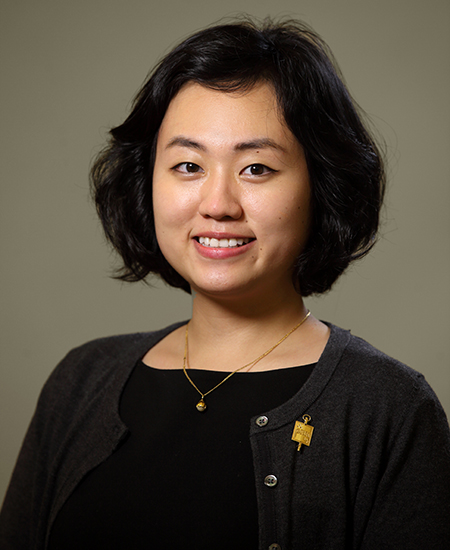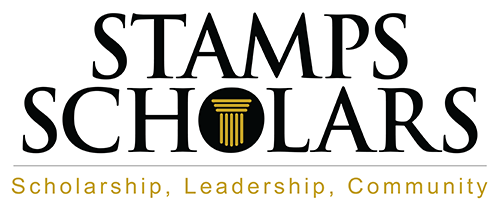 Degree: B.A. in English, Double Minor in Spanish and Education
Degree: B.A. in English, Double Minor in Spanish and Education
How did the Stamps Scholarship help shape your undergraduate experience?
The Stamps Scholarship helped me expand my passion on an international scale. Knowing that I have someone investing in my undergraduate education has provided great mental support; but most of all, the enrichment stipend enabled me to immerse myself in the linguistic intricacies of Spanish for a month in Spain (2014) and a week in Ecuador (2013) and to plan my studies with language education in Denmark (2013), Turkey (2013), and Scotland (2015) to deepen my understanding of the field. Most importantly, the flow of linguistic, cultural, and educational diversity I encountered during these experiences strengthened my passion in language and literacy. All of these experiences would not have been possible without the strong support from the Stamps Family Charitable Foundation.
Knowing what you know now, what advice would you give your freshman self?
Expect to be overwhelmed, but don’t feel like you have to be perfect at everything.
Who has had the greatest impact on you throughout your college career and how so?
Dr. David Davis has been a wonderful mentor during my life at Mercer University. I’m grateful for not only his introducing me to the works of William Faulkner, but also his impact with helping me understand more about myself. I met Dr. Davis in his course on William Faulkner and critical theory during my sophomore year. He eventually led me to begin my honors thesis as an underclassman, which allowed me to share my research on race and temporality in The Sound and the Fury with other English majors at the National Conference of Undergraduate Research in Spokane, Washington. Outside the classroom, Dr. Davis was my constant source of guidance throughout my countless drafts and applications for scholarships and graduate schools. Revision is a skill that I have not yet mastered, and I would not be where I am without his patience and feedback during the hectic moments of my college career.
Please share your most memorable Stamps Scholar experience.
As a Stamps Scholar, I had an opportunity to visit Turkey to observe its school systems and immerse myself in the coexistence of Western and Eastern cultures in the country. During my journey, I had the chance to discuss education philosophy with ?ñmer, a Turkish merchant at the Grand Bazaar. I remember listening to ?ñmer as he was cutting the colorful Turkish delights, saying: “It’s hard to know if I’m supporting my daughter correctly. My brothers called me crazy when I sent my daughter to America. But they’re wrong. English will give her many options.” In a choppy, yet rhythmic English accent, ?ñmer reminded me of how language can provide hope and opportunities for the parents and children across the world. His words fueled my interest not only in education but also in language as a tool of empowerment. This experience strengthened my belief that language education offers more than a simple addition of a code for universal communication. It widens access to knowledge and opens unlimited possibilities for personal growth, and will play a critical role in addressing the rising linguistic diversity within the classrooms across the U.S. I will cherish this encounter as I pursue my passion; most importantly, it would not have been possible if I weren’t a Stamps Scholar.
Plans after graduation?
In August, I’ll begin my M.Ed. in Language and Literacy program at Harvard Graduate School of Education. At Harvard, I plan to pursue my interests in exploring the relationship between language acquisition and literacy and advocating language learners in schools. In addition to the foundational courses on bilingualism, language acquisition, and literacy, I will have opportunities for research and interaction with institutions such as Cambridge Public Schools and Boston Public Schools. I am very excited to learn more about the latest skills, research, and perspectives of literacy and language teaching in the location with some of the highest demands for and the most active implementations of language-education programs in the nation.
